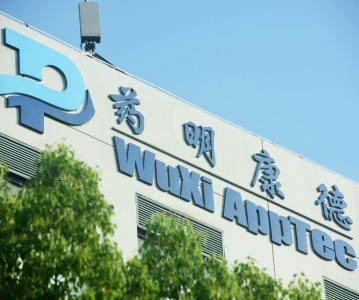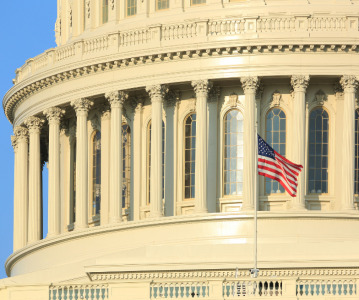Public-Private Partnerships Vital to Advance Ebola Treatment Pipeline

In the battle against Ebola, incentives from governments and healthcare policymakers have been and will continue to be vital for advancing the current treatment pipeline, by mitigating the risk and up-front costs from pharmaceutical companies, says an analyst with research and consulting firm GlobalData.
Daian Cheng, PhD, GlobalData’s Analyst covering Infectious Diseases, states that despite a clear need for novel therapeutic approaches to combat Ebola, the infection has not represented an attractive investment for pharmaceutical companies due to its low incidence and the occurrence of outbreaks in countries that cannot afford expensive medicines.
Cheng says: “These two factors drastically reduce the ability of drug developers to recoup their R&D costs.
“So far, clinical-stage experimental treatments for Ebola have all been advanced, at least in part, with the financial support of public entities, and the contribution of public resources to R&D has only increased as fears of the virus have spread.”
Cheng notes that the most advanced Ebola pipeline candidate is GlaxoSmithKline’s (GSK) therapeutic vaccine, cAd3-ZEBOV. This treatment was originally developed jointly by the US National Institute of Allergy and Infectious Diseases and Okairos, which was acquired by GSK in 2013.
Cheng explains: “GSK’s vaccine contains a chimpanzee-derived adenovirus vector that carries a single Ebola viral gene and targets the Ebola Zaire strain, which is responsible for the current outbreak.
“A Phase I study in healthy UK volunteers started in September and the initial manufacturing costs are being supported by a recently formed international consortium of government bodies and leading research institutions. This is headlined by a joint $4.5 million grant from the Wellcome Trust, the Medical Research Council, and the UK Department for International Development."
The analyst adds that experts are hopeful for data on cAd3-ZEBOV’s safety and dosing in healthy volunteers to be available by the end of this year. Other pharmaceutical companies with promising Ebola treatments that are partially supported by public funding include Johnson & Johnson, Mapp Biopharmaceutical, and NewLink Genetics.
“Ultimately, more partnerships between public entities and pharmaceutical companies are needed to bring to market novel therapies that combat neglected diseases, particularly those which, like Ebola, affect resource-deprived regions of the world,” Cheng concludes.
Related News
-
News WuXi to sell CGT manufacturing unit to US-based Altaris LLC
At the tail end of 2024, Chinese-based CDMO WuXi AppTec announced the signing of their deal with private equity firm Altaris LLC, confirming the sale of WuXi Advanced Therapies, the cell and gene therapy manufacturing arm of WuXi AppTec. -
News Women in Pharma: Our hopes for 2025 and beyond
Our last instalment for 2024 of the Women in Pharma series brings you messages direct from the Informa Markets CPHI team as they discuss the advice and insights they have carried throughout their roles working at CPHI, and what they hope to see for the... -
News CPHI Milan Wrap-Up Report: Conference Highlights
Discover the emerging and trending topics of the pharmaceutical industry with our CPHI Milan Conference Highlights, with exclusive insight from pharmaceutical leaders and experts! -
News BIOSECURE Act not included in key defense spending bill for 2025
On December 7, 2024, the Biden administration revealed the 2025 National Defense Authorization Act, an annual defense bill specifying the budget and expenditures of the US Department of Defense. The controversial BIOSECURE Act was notably missing from ... -
News Lessons from CPHI Milan 2024: Sunny Intervals for Pharma Manufacturing?
As the 2024 CPHI conference wrapped up in Milan, we caught up with L.E.K. Consulting – a global strategy consulting firm with deep expertise in pharma manufacturing – to discuss evolving market perspectives and business outlook. -
News Trump 2.0: What does the US election result mean for the healthcare industry?
After Trump won the Presidential election in the US in early November, we take a look at some of the implications a new Trump administration could have on the health and pharmaceutical industry, and on US patients. -
News Women in Pharma: Reflections from Behind the Scenes
In this instalment of our monthly series, the team that brings you the Women in Pharma series each month sits down for a heart-to-heart on what the series means to them, and how they hope to continue their work in the future. -
News Scaling the Industry: CPHI Scale-Up Market interview with YSK Laboratories
For the first time, CPHI Milan hosted the CPHI Start-Up Market, expanding support for emerging and small-sized enterprises in their transition to the next level of growth. In this interview, we spoke with Yuvansh Khokhani, Managing Director of YSK Labo...
Position your company at the heart of the global Pharma industry with a CPHI Online membership
-
Your products and solutions visible to thousands of visitors within the largest Pharma marketplace
-
Generate high-quality, engaged leads for your business, all year round
-
Promote your business as the industry’s thought-leader by hosting your reports, brochures and videos within your profile
-
Your company’s profile boosted at all participating CPHI events
-
An easy-to-use platform with a detailed dashboard showing your leads and performance

.png)





